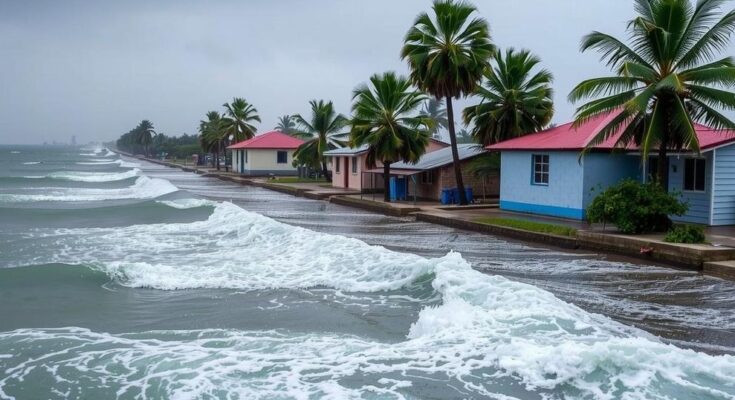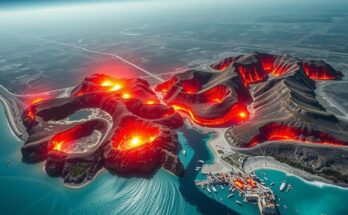The death toll from Cyclone Chido in Mozambique has increased to 75, nearly double previous numbers, amid widespread destruction in Cabo Delgado province, already afflicted by conflict. Rescue efforts reveal intense damage, highlighting the compounded effects of conflict and climate change. The cyclone, featuring hurricane-equivalent winds, raised significant concerns for future storms in an already vulnerable region.
The toll of Cyclone Chido, which recently struck Mozambique, has risen to 75, nearly doubling previous estimates, as emergency responders reach previously inaccessible areas devastated by the storm. The cyclone hit Cabo Delgado province, already impacted by a protracted insurgent conflict. The National Institute for Natural Disasters reported that at least 69 lives were lost and 740 individuals sustained injuries. The district of Mecufi suffered significant infrastructure damage, as rescue crews faced challenges navigating washed-out roads. United Nations representatives described the scene in Mecufi as total devastation, with entire structures flattened. Following the storm, a significant population, already displaced by violence, faced further challenges from climate-related disasters. Additionally, Cyclone Chido, producing winds up to 115 miles per hour, has been categorized similarly to a Category 3 hurricane in the Atlantic. It also caused damage in Mayotte before dissipating in Zimbabwe. Historically, the onset of the rainy season has resulted in severe weather disturbances in the region, raising concerns for future storms as Mozambique continues to experience the adverse effects of climate change.
Cyclone Chido struck Mozambique’s Cabo Delgado province amidst ongoing socioeconomic difficulties exacerbated by a lengthy insurgency that has displaced numerous residents. Mozambique is classified among the world’s poorest nations and suffers significantly from the impacts of climate change, which frequently brings severe storms from the southern Indian Ocean. The recent cyclone stands as a continuation of the country’s struggle with extreme weather, following previous storms like Cyclone Freddy and Cyclone Gombe, which also resulted in fatalities and widespread damage in recent years. The accumulated challenges faced by the populace highlight the compounded risks of conflict and climate change.
In summary, Cyclone Chido has had a catastrophic impact on Mozambique, particularly in Cabo Delgado province, where the death toll has escalated due to the flooding and destruction caused by the storm. The cyclone not only exacerbates existing vulnerabilities from the ongoing conflict but also raises alarm about future climate-induced disasters in a region grappling with endemic poverty and instability. This situation urges a need for enhanced humanitarian assistance and climate resilience initiatives.
Original Source: www.nytimes.com




